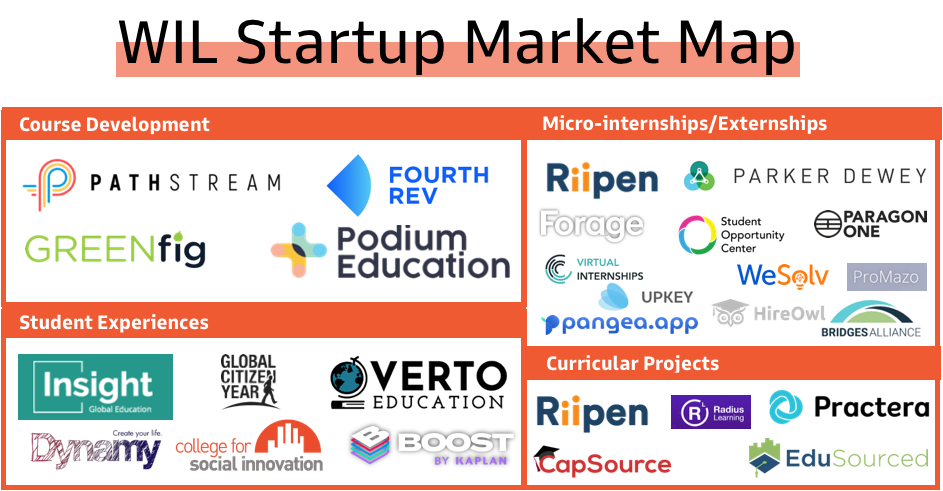By James Kim (Reach Capital) and Alberto Arenaza (Transcend Network)
This blog post provides a high-level narrative and overview of higher education trends and the Work-Integrated Learning space. For a deep dive into our analysis, including specific investment theses, please view our full report here.
For decades, “higher education” was synonymous with career advancement. Higher education represented a platform for socioeconomic mobility, growth, and employment opportunity. Enrollment peaked in 2010, with over 21 million students at degree-granting institutions in the US alone.
But ten years later, higher education is under unprecedented pressure. Only 38% of students who graduated from college in the past decade agree that their higher education was worth the cost. Worse, only 11% of business leaders “strongly agree” that higher ed institutions are graduating students with the necessary competencies, and many have eliminated degrees from their hiring criteria in favor of skills assessment. Not surprisingly, higher ed enrollment is projected to be down 15% by 2026.
COVID-19 has taken this mounting pressure on higher education to its boiling point; unlike in previous economic crises when higher education was countercyclical, university enrollment has taken a hit during the pandemic and ensuing recession. This has been driven, in part, by student interest in alternative skill development pathways over traditional degree programs.
Many predict that as a result of the above trends, traditional higher education will soon go the way of print newspapers. However, evidence from students and employers suggests the current situation may not signal the end of higher education, but rather an opportunity for reinvention.
Specifically, after deep research and dozens of interviews with education and industry stakeholders, we assert that higher ed can still deliver on its promise to students — but that in order to do so, it will need to partner with the private sector to:
- Create industry-relevant learning experiences
- Connect students to employers at scale
The opportunity is significant: 70% of career centers today have no industry partnerships in place, even as the number one recommendation from employers to colleges is the inclusion of real-world projects in academic curriculum, and more than four in five employers believe the completion of a supervised and evaluated internship would ensure that recent college graduates possess the skills and knowledge needed for success at their company.
Drilling down further, we believe a reinvented higher education will rely heavily on Work-Integrated Learning (WIL), experiences that integrate academic learning (higher education’s core competency) with practical workforce skills.
We have identified four broad categories of solutions that WIL providers can offer to higher ed institutions: Micro-Internships, Curricular Projects, Student Experiences, and Course Development. Below, we give a brief description of these categories and map them against a non-exhaustive set of startups already operating in this space.
Micro-Internships are short-term professional experiences for students. They are often virtual, sometimes paid, and occasionally self-paced without direct employer involvement. For example, Forage’s virtual work experience programs mimic real tasks that entry-level employees are expected to perform in industries such as finance and consulting.
Curricular Projects are employer-driven projects embedded in academic curriculum for credit, facilitated by a faculty instructor. For example, Reach portfolio company Riipen offers an open marketplace connecting university courses to employers through real-world projects relevant to the course curricula, ranging from digital marketing to product development to market entry strategy.
Student Experiences are for-credit experiences focused on skill development outside of traditional work environments, such as community service or gap years abroad. For example, Verto Education offers a for-credit first-year college and service-learning experience in one of several locations around the world, with guaranteed admission to a partner college afterwards.
Course Development startups create entire skills-focused curricula for higher education, using tools and content sourced directly from tech partners. For example, Pathstream builds for-credit certificate-bearing course pathways for Facebook (digital marketing), Tableau (data analytics), Salesforce (customer relationship management), Unity (AR/VR development), and Asana (project management), and delivers them to students through higher ed partnerships.
Historically, there has been little collaboration between higher education and employers. The former suffers from fragmentation and lack of ownership, as the buyer can be the career center, the student services office, departments, schools, or even individual faculty members. Employers, in turn, have not always seen mission-critical value in collaborating with universities beyond recruiting — often investing in WIL, if at all, through non-priority budgets such as CSR.
However, in light of the trends described above — higher education recognizing the need for career-relevant content, employers increasingly interested in skill-based hiring, and accelerated student interest in faster and more reliable pathways to employment — both higher ed institutions and employers are increasingly looking to WIL startups to bridge the two sides of the labor marketplace. In fact, some higher education institutions are centralizing all their WIL initiatives and provider relationships under an Experiential Learning Center, making WIL a true institutional priority.
In our research, we have found that the most successful WIL interventions are those that integrate professional experiences (micro-internships and projects) with academic learning (through reflection, assessments, and other curricular elements). Not only does this approach best meet the needs of both higher ed and employers, but most critically, it enables students to authentically internalize and apply the skills they will need in the workplace, as well as build on top of the more foundational knowledge and skills they gain in their degree programs.
At Reach, we believe Work-Integrated Learning represents the future of higher education and will play a meaningful role in the broader ecosystem of solutions facilitating upskilling/reskilling, lifelong learning, socioeconomic mobility, and the future of work. If you’re building a company in this space, please get in touch or submit your pitch — we’d love to hear from you.
Reach is deeply grateful to Alberto Arenaza, founder of Transcend Network, for his help with conducting the research for this report. Transcend Network is the global community of founders building the future of learning and work.
Many thanks to the founders, higher education professionals, and students who agreed to be interviewed: Christine Cruzvergara (Handshake), Dana Stephenson + Shawn Lestage (Riipen), Byron Hsu (ParagonOne), Dan Curme (Minerva Schools), Matt Rascoff (Duke University), Craig Vandermeer (Insight Global Education), Peggy Eichinger (University of Waterloo), Spencer Ingram (Riley), Maxwell Brodie + Bryan Hatton (Kaizena), Joe Testani (University of Rochester), Rose Nakamoto (Santa Clara University), and all the higher education students we surveyed.


